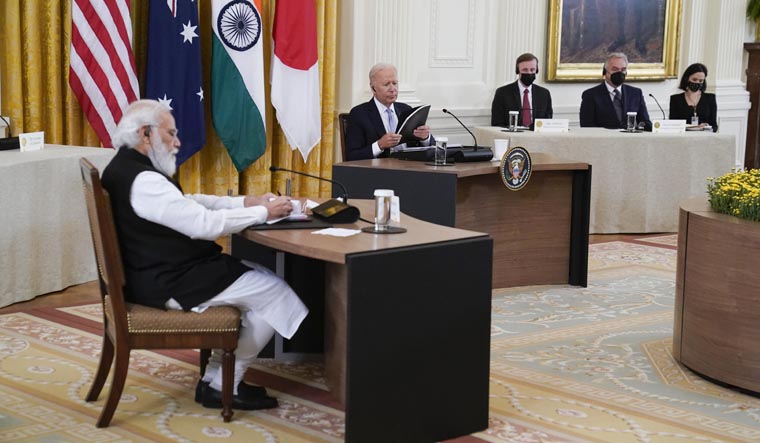Addressing the press after the Quad meeting between India, the US, Japan and Australia, Foreign Secretary Harsh Vardhan Shringla said the leaders discussed the Afghan situation, challenges in Indo-Pacific, COVID-19, climate change and cyber security. The leaders shared perspectives on the situation in Afghanistan, the emerging challenges in South Asia and Indo-Pacific, he said. At the same time, Pakistan's role in Afghanistan and its involvement in terrorism were among the issues discussed in the Quad summit.
"Prime Minister Modi announced that India would make available eight million doses of Johnson & Johnson's vaccine, manufactured in India, by October end," Shringla said. The leaders also discussed evolving a common approach to emerging technologies, cyber security and addressing the challenge of climate change and space cooperation, he added. He said the joint statement has a strong language with regard to terrorism. India, the US and several other world powers have been talking about the need to ensure a free, open and thriving Indo-Pacific in the backdrop of China's rising military manoeuvring in the region.
The leaders also announced the launch of a new Quad fellowship, which would help students from each of the countries to pursue advanced degrees in leading Science, Technology Engineering, and Mathematics (STEM) programmes through the United States.
The four countries have pledged to work together for ensuring peace and prosperity of the Indo-Pacific and the world, as top leaders of the Quad grouping announced a slew of new initiatives to take on common challenges, amidst muscle flexing by an assertive China in the strategic region.
"In a way, Quad would play the role as force for global good," Prime Minister Narendra Modi said in his short address on Friday and exuded confidence that this cooperation by the four democracies will ensure peace and prosperity in the Indo-Pacific region and the world.
Opening the summit, President Biden said the four democracies have come together to take on common challenges from COVID to climate. This group has democratic partners who share world views and have common vision for the future, he said.
India, the US and several other world powers have been talking about the need to ensure a free, open and thriving Indo-Pacific in the backdrop of China's rising military manoeuvring in the region.
China claims nearly all of the disputed South China Sea, though Taiwan, the Philippines, Brunei, Malaysia and Vietnam all claim parts of it. Beijing has built artificial islands and military installations in the South China Sea.




